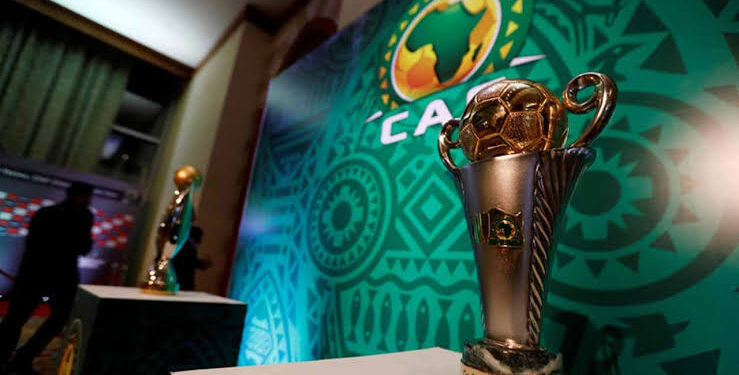At the Stade Alassane Ouattara Stadium in Abidjan last Sunday, mixed emotions filled the air. Heartbreak for the Super Eagles of Nigeria and joy for the Elephants of Cote d’Ivoire, who clinched the AFCON 2023 trophy with a 2-1 victory over Nigeria.
Ivory Coast’s remarkable journey to lifting the trophy concluded a thrilling AFCON, making it the best experience so far.
During the Africa Cup of Nations opening ceremony on January 13th, CAF President Patrice Motsepe expressed optimism that AFCON 2023 would be the best so far. The events and drama that unfolded in Abidjan undoubtedly support this claim.
Before the final of the competition, Dr Patrice Motsepe mentioned in a press conference that nearly 2 billion people had tuned in to watch AFCON 2023.
The notable rise in viewership was linked to broader broadcast rights, media coverage, commercial partnerships, and the influence of social media.
CAF had 17 commercial partners for the tournament, which included TotalEnergies as the title sponsor, official sponsors such as 1xBet, Visa, and Orange, along with regional sponsors like Ecobank, Unilever, and MTN.
Matches were shown in about 180 countries through deals with partner broadcasters like Sky, Canal+, beIN Sport, BBC, and MultiChoice, as well as 45 Free To Air broadcasters.
Media accreditation saw 6,000 journalists apply, which is double the number from the last AFCON in Cameroon in 2022.
How Many People Viewed AFCON 2021 and how it compares to AFCON 2023?
The CAF activity report for 2021-2022 indicates that around 500 million viewers from 160 nations tuned in to watch AFCON 2021 in Cameroon, marking an increase of 40 nations compared to AFCON 2019 in Egypt.
Additionally, CAF recorded 1.4 billion streaming impressions on its digital platforms, and there were 351.4 million online video views associated with AFCON Cameroon 2021.
By sticking to the earlier estimate of 2 billion people before the final, it suggests that AFCON viewership saw an increase of over 300%, and this could be more when the official report from CAF is released.
Estimated Sponsorship Revenue for AFCON 2023
According to GlobalData, a London-based market research firm, it is projected that CAF will generate approximately $75 million in sponsorship revenue from the current AFCON.
The tournament featured 17 commercial partners, including TotalEnergies as the title sponsor, along with 1xBet, Orange, and Unilever.
In the fiscal year 2021-2022, CAF’s overall revenue reached $103.6 million. The sponsorship funds derived from Competitions contributed significantly to this total, generating an impressive cumulative revenue of $79.8 million.
This marked a notable increase of $3.6 million compared to the previous year’s sponsorship funds.
The projected sponsorship revenue for the AFCON 2023 alone is estimated to be $75 million, underscoring the substantial and commendable contribution of CAF to this achievement.
PRIZE MONEY FOR AFCON 2023
In January, prior to the commencement of AFCON 2023, CAF disclosed a 40% increase in the prize money.
The champions, Ivory Coast, are set to receive USD 7,000,000. The Super Eagles of Nigeria will be awarded USD 4,000,000, while South Africa and DR Congo will each receive USD 2,500,000.
The other four quarter-finalists, Mali, Angola, Guinea, and Cape Verde, will individually get USD 1,300,000.
AFCON 2023 SOCIAL MEDIA IMPACT
AFCON made a big impact on social media, from lively fan chats to live updates. But it wasn’t just for fun; some people also made money from it.
Last year, Twitter started an initiative where users could earn a share of the ad revenue from sponsored posts under their tweets.
Some folks partnered with brands, joined subscription programs, or got tips from their followers.
For example, a video of the final moments of the Côte d’Ivoire vs. Nigeria match, posted on the official CAF account, got over 15 million views, 1.5 million likes, and 300,000 retweets.
According to Statista, the average cost per thousand impressions for social media ads globally was $4.33 in the second quarter of 2023, making the estimated ad revenue around $65,000.
The 2023 Africa Cup of Nations was undoubtedly a success both on and off the field. The Confederation of African Football, CAF can take pride in organizing a splendid tournament.


